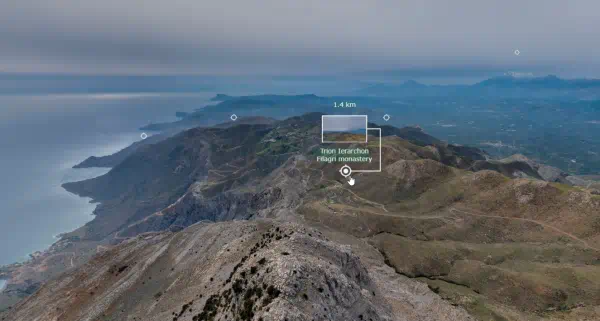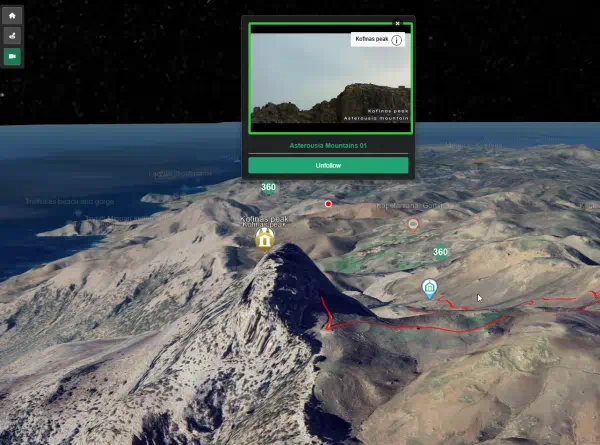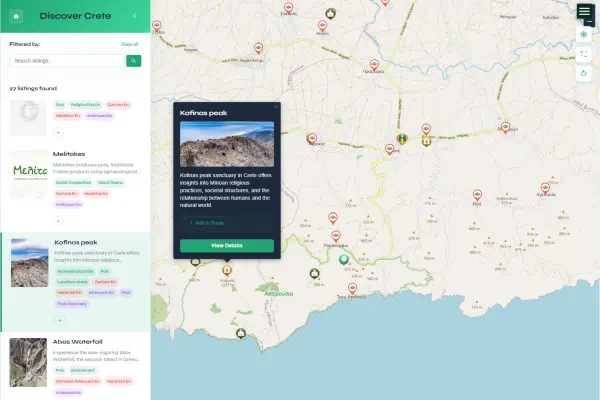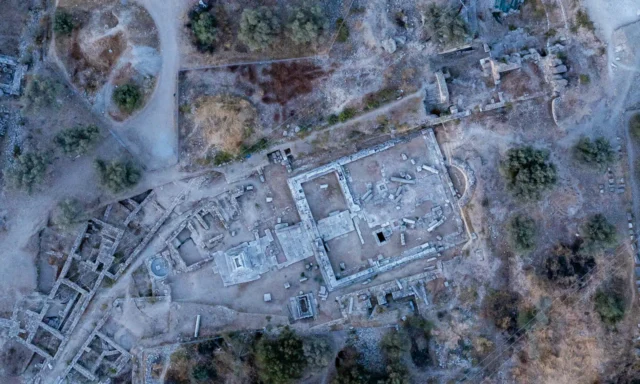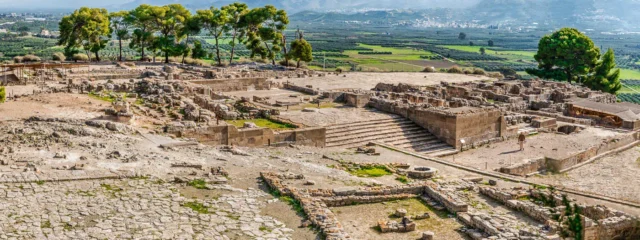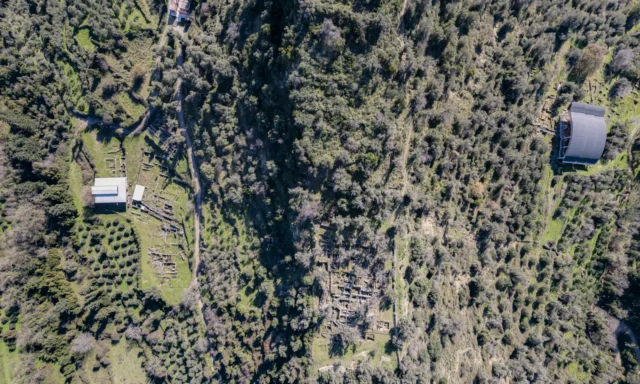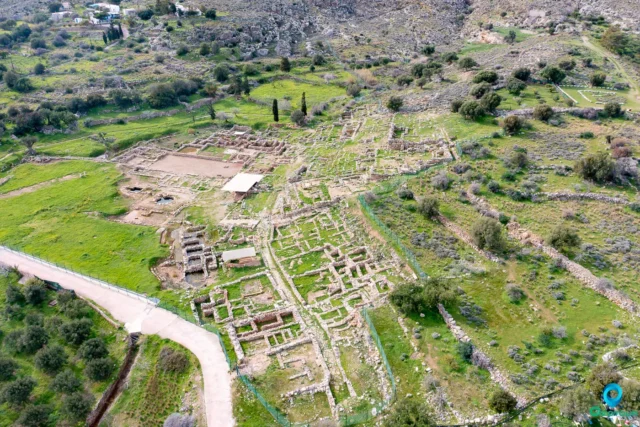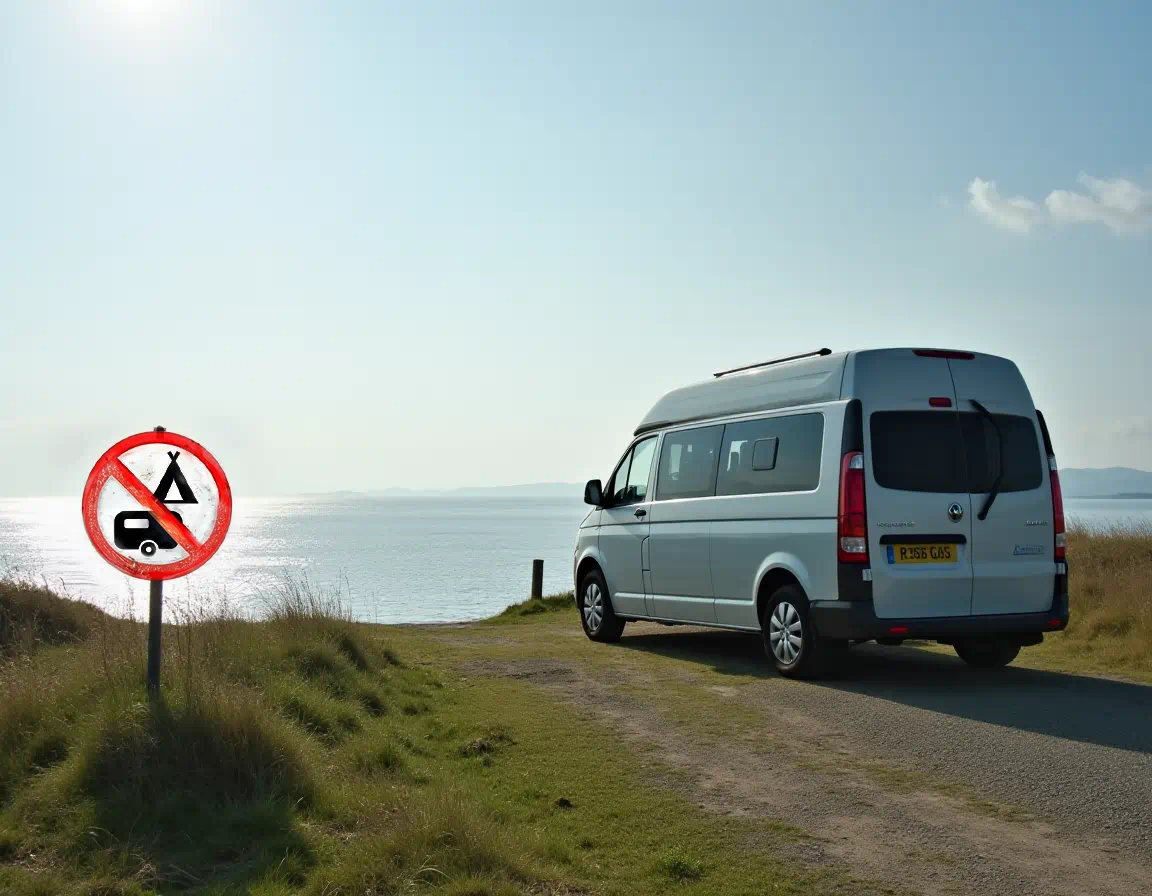Historically, Greece maintained a degree of tolerance towards ‘wild camping’ with campervans, often stemming from vaguely defined regulations and inconsistent enforcement. The recent legislative action is driven by escalating pressures, including the increased volume of campervan tourism, visible environmental and aesthetic impacts, and a governmental push towards more sustainable tourism models. However, this reactive measure addresses the symptom of unregulated camping without immediately resolving the underlying deficit in dedicated campervan infrastructure across the country.
However, the introduction of such stringent measures against campervans invites skepticism when viewed against the backdrop of Greece’s long-standing and widely acknowledged struggles to effectively regulate and control illegal construction. Critics might question the allocation of enforcement resources towards managing the relatively transient impact of campervans while the far more permanent environmental and aesthetic damage caused by unauthorized buildings, often in sensitive coastal or natural areas, continues to be a persistent challenge demanding significant regulatory attention and political will.
Compared to other European nations, Greece’s new stance places it among the stricter countries regarding wild camping. The European landscape varies significantly, from the liberal ‘Right to Roam’ principles in Scandinavia (though often excluding motor vehicles) to the extensive networks of dedicated ‘Aires’ and ‘Stellplätze’ in France and Germany, which manage campervan flows through infrastructure provision. Portugal offers a recent parallel, having tightened rules while also promoting designated areas. Greece’s current approach, emphasizing prohibition with limited alternatives, contrasts with these infrastructure-led models and may influence its competitiveness within the growing European campervan market.
Ultimately, the success of Greece’s new policy will depend not only on rigorous enforcement but also on a more integrated, long-term strategy. Addressing the national infrastructure deficit, clear communication with tourists, and continuous monitoring are crucial. The government faces a strategic decision: whether to merely suppress a problematic tourism segment or to leverage this regulatory reset to cultivate a more structured, sustainable, and potentially higher-value campervan tourism sector through targeted investment and development. The path chosen will significantly shape the future of this travel niche in Greece and offer lessons for other destinations grappling with similar challenges.
Decoding Greece’s New Campervan Regulations
The Greek government, through its Ministry of Tourism, has enacted new legislation aimed at fundamentally altering the landscape of campervan tourism within the country. This regulatory shift moves decisively away from past ambiguity and tolerance towards explicit prohibition of certain practices, backed by clear enforcement mechanisms.
Legislative Intent: Ending “Abusive Occupation”…
The stated primary objective underpinning the new regulations is the termination of what the Ministry of Tourism terms the “abusive occupation” of sensitive public spaces by campervans and similar vehicles. This language deliberately frames unregulated, overnight parking and camping (commonly known as “wild camping”) not merely as an uncontrolled activity or a minor nuisance, but as an illegitimate and harmful encroachment upon national resources. The choice of such strong terminology signals a firm governmental stance and seeks to delegitimize the practice in the eyes of both the public and visiting tourists, thereby justifying the introduction of stricter controls and penalties.
Furthermore, the Ministry’s assertion that the legislation serves to codify the “obvious” suggests a perceived gap between widely understood (or desired) norms of behaviour regarding the use of public land and the previous reality of inconsistent regulation or enforcement. It implies that the negative impacts of unregulated camping were broadly apparent but lacked sufficient legal backing or political will for effective intervention until now. This framing underscores the government’s view that the restrictions are not novel impositions but rather the formalization of necessary boundaries for protecting shared assets. This policy change marks a significant departure from implicit tolerance or administrative neglect, moving towards explicit legal prohibition as a primary tool for managing this form of tourism and its associated impacts.
Prohibited Locations and Activities
The core provision of the new law is a clear ban on the stationing (parking and staying, particularly overnight) of campervans, motorhomes, and caravans (referred to collectively under terms like τροχόσπιτα – trohospita) outside of officially designated and organized camping areas or specially marked campervan parking zones. The legislation is explicit in identifying the types of locations where this prohibition is most critical: forests and woodlands, the entirety of the coastline including shores and beaches, and areas designated as archaeological sites.
The specific enumeration of these zones highlights the principal concerns motivating the law: the prevention of environmental degradation in natural habitats, the preservation of the aesthetic quality of tourist landscapes (especially beaches), and the protection of Greece’s invaluable cultural heritage from physical damage or inappropriate use. Importantly, the prohibition is framed as applying universally across Greece, not limited only to officially protected zones. Unless a location is explicitly designated and authorized for campervan stays (such as a licensed campsite or a future potential network of approved spots), overnight stationing is forbidden. This comprehensive approach aims to eliminate ambiguity and leave no doubt that unregulated camping is no longer permissible anywhere outside of defined, managed locations.
Penalties and Enforcement Framework
To ensure compliance, the legislation introduces a specific framework for penalties and enforcement. Violations of the ban on unauthorized stationing are subject to an administrative fine of €300. This fine is applicable per vehicle and per day or instance of the infringement, suggesting that continued non-compliance can lead to accumulating penalties. The authority to impose these fines is vested in the relevant enforcement bodies, primarily the police (Ελληνική Αστυνομία – ELAS) and the Port Authority (Λιμενικό Σώμα – Ελληνική Ακτοφυλακή), depending on the location of the infraction.
Beyond the financial penalty, the enforcement mechanism includes the administrative measure of removing the offending vehicle. This provides authorities with a direct means to terminate the violation and physically clear vehicles from prohibited areas. While the primary source article emphasizes the €300 fine and removal, related discussions around the legislative package have mentioned potentially higher fines (e.g., €3,000 escalating to €10,000) for camping within particularly sensitive zones like archaeological sites, Natura 2000 areas, or coastal zones, although these specifics require verification within the final legal text. The establishment of clear fines and designated enforcement bodies (police, port authorities) aims to create a credible deterrent effect, contrasting sharply with the previous situation where enforcement was often perceived as sporadic or non-existent. However, the immediate focus appears to be punitive, centered on fines and removal, rather than simultaneously promoting alternative solutions through infrastructure development within the same legislative announcement. This emphasis on prohibition signals an immediate priority to halt the behaviour deemed problematic.
Underlying Rationale: Balancing Tourism and Protection
The Ministry of Tourism explicitly justifies the new regulations as a necessary measure for environmental protection and the safeguarding of Greece’s unique natural and cultural heritage. The uncontrolled presence of campervans in sensitive areas is linked to negative impacts such as waste generation, habitat disturbance, soil erosion, potential fire risk, and the visual degradation of landscapes and heritage sites. The law is thus presented as a tool to mitigate these threats and ensure the long-term preservation of the resources that form the bedrock of Greek tourism.
Furthermore, the initiative is framed within the broader context of promoting sustainable tourism development. By curbing practices perceived as environmentally damaging and aesthetically detrimental, the government aims to foster a tourism model that is more respectful of the environment and local communities, potentially enhancing the overall quality of the visitor experience for other types of tourists and preserving the country’s appeal for future generations. This reflects a fundamental tension faced by many popular destinations worldwide: how to harness the economic benefits of tourism while managing its environmental and social footprint effectively. The new campervan law represents Greece’s attempt to recalibrate this balance, prioritizing protection and regulation over the previously tolerated freedoms associated with unregulated camping.
The Cretan Context: Specific Implications and Challenges
Crete, as Greece’s largest island and a premier international tourist destination, stands to be significantly affected by the new national regulations governing campervans. Its unique geographical, ecological, and cultural characteristics make it a focal point for both the problems the law seeks to address and the challenges associated with its implementation.
Crete’s Vulnerability and Attractiveness
The island of Crete possesses an extensive and varied coastline, featuring numerous renowned beaches (such as Elafonissi, Balos, Falasarna, Vai), dramatic cliffs, and secluded coves – precisely the types of coastal environments explicitly protected under the new law. Furthermore, Crete is home to world-class archaeological sites, including the Minoan palaces of Knossos, Phaistos, and Malia, as well as countless other historical monuments, all falling under the protective scope of the legislation. Ecologically, the island boasts significant mountainous regions (Lefka Ori, Psiloritis, Dikti), gorges (like Samaria), and areas designated under the Natura 2000 network, representing sensitive habitats vulnerable to disturbance.
This concentration of valuable natural and cultural assets makes Crete exceptionally attractive to tourists seeking diverse experiences, including those travelling by campervan who value proximity to nature and scenic landscapes. However, this same concentration makes the island particularly vulnerable to the negative impacts of unregulated camping. Documented instances of overcrowding, environmental degradation (waste, damage to dunes), and conflicts arising from unauthorized campervan presence, particularly in popular coastal areas like Elafonissi and Falasarna, have been reported. These pre-existing local issues underscore the relevance of the national legislation to Crete, suggesting that problems observed on the island likely contributed to the impetus for the nationwide ban. Crete, therefore, serves as a microcosm of the conflict the law aims to resolve: its most valuable tourism assets are also the most susceptible to the pressures targeted by the new rules.
Enforcement Challenges in Crete
While the law provides a clear mandate for prohibition and penalties, its effective implementation across Crete presents considerable practical challenges. The island’s sheer size (over 8,000 square kilometers), its rugged mountainous terrain, and its vast coastline (over 1,000 kilometers) make comprehensive monitoring extremely difficult. Policing remote beaches, secluded mountain areas, and dispersed archaeological sites to prevent unauthorized campervan parking will require significant and sustained resource allocation for personnel and equipment.
The reliance on the national police and the port authorities for enforcement may place additional strain on local branches, particularly during the peak summer tourist season when these forces are already stretched thin managing general public order, traffic, maritime safety, and other tourism-related demands. Ensuring consistent enforcement across the island, from easily accessible coastal spots to more isolated inland areas, will be a formidable task. Without adequate resources and a clear operational strategy for monitoring and response, there is a risk that the ban could be enforced effectively in some high-profile areas but remain largely symbolic in more remote regions, potentially displacing the problem rather than eliminating it. The geographical complexity of Crete makes it a demanding test case for the practical viability of the national enforcement framework.
Economic and Tourism Impacts on Crete
The economic consequences of the strict ban on unregulated campervan stays in Crete are likely to be complex and varied. On one hand, the measure could deter a specific segment of the campervan market – those who prioritize the freedom and cost-savings associated with wild camping and may now choose alternative destinations offering greater flexibility or better-developed infrastructure. This could negatively impact small businesses in remote areas that might have benefited indirectly from spending by these tourists (e.g., local tavernas, mini-markets).
Conversely, the regulation is likely to be welcomed by operators of formal accommodation, including hotels and especially organized campsites, who may see increased demand as campervan users are channeled towards legal options. Local communities and authorities previously burdened by the negative externalities of unregulated camping (waste cleanup costs, environmental damage, social friction) may also view the ban positively. Furthermore, the policy shift could stimulate investment in developing new, compliant campervan facilities or upgrading existing campsites to better cater to motorhome needs. However, a significant concern revolves around the current capacity of such facilities in Crete. If the existing network of organized campsites and designated spots is insufficient to meet the demand previously absorbed by wild camping, it could lead to overcrowding at legal sites, frustration among tourists unable to find compliant accommodation, or continued attempts at non-compliance. The overall economic outcome will depend on the relative size of the deterred tourist segment versus the potential gains in the formal sector, the island’s ability to adapt its infrastructure, and the effectiveness of enforcement. The potential mismatch between the immediate prohibition and the likely slower development of adequate alternatives represents a significant transitional challenge for Crete’s tourism economy.
Greece’s Campervan Landscape: Past and Present
The recent legislative changes targeting campervans did not occur in a vacuum. They represent a significant break from a preceding era characterized by a different approach to managing this form of tourism, driven by accumulating pressures and a growing recognition of the inadequacy of the previous framework.
The Previous Era of Unclear Rules and Limited Enforcement
For many years, Greece developed a reputation among European campervan travelers as a destination offering considerable freedom regarding overnight stays outside formal campsites. This perception stemmed less from explicit legal permission and more from a combination of factors: unclear or outdated regulations, and notably, often lax or inconsistent enforcement. While laws prohibiting camping outside designated areas did exist (for instance, Law 392/1976 is often cited in discussions about camping regulations), their specific application to the act of parking a self-contained motorhome overnight, as distinct from setting up tents and associated equipment, was frequently ambiguous or subject to interpretation by local authorities.
This legal grey area, coupled with a general tendency towards tolerance or limited enforcement capacity, especially in more remote areas, allowed the practice of unregulated campervan parking to flourish. Campervans became a common sight along beaches, in coastal groves, near archaeological sites (outside official parking lots), and in other scenic spots, particularly during the warmer months. This long-standing situation created an expectation among many returning visitors and fostered a word-of-mouth reputation for Greece as a ‘wild camping friendly’ destination, even if the legal basis for this was tenuous. Understanding this history of de facto tolerance is crucial for appreciating the magnitude of the current policy shift and the potential disruption it represents for tourists accustomed to previous conditions. The new law aims explicitly to end this ambiguity.
Factors Driving the Regulatory Shift
The transition from this relaxed approach to strict prohibition was propelled by a confluence of escalating factors. A primary driver was the sheer increase in the volume of campervan tourism across Europe, a trend potentially amplified by post-pandemic preferences for self-contained travel. Greece, as an attractive destination, experienced a corresponding rise in campervan arrivals, leading to greater pressure on popular locations.
This increased volume made the negative impacts more visible and acute. Environmental concerns grew regarding waste disposal, damage to sensitive ecosystems like dunes and coastal vegetation, water resource depletion in arid areas, and increased fire risk. Overcrowding in iconic beauty spots, particularly during peak season, led to aesthetic degradation and conflicts between different user groups (e.g., campervan users, beachgoers, locals). Complaints from local communities about noise, sanitation issues, and the ‘privatization’ of public spaces became more frequent. Furthermore, lobbying from the formal accommodation sector (hotels, organized campsites) likely played a role, arguing for fair competition and highlighting the unregulated nature of wild camping. Finally, a growing governmental focus on sustainable tourism principles and the need to protect Greece’s natural and cultural capital for the long term provided the overarching policy rationale for intervention. The perceived failure of the previous ambiguous approach to manage these accumulating pressures ultimately necessitated a decisive regulatory response.
The Infrastructure Gap
A critical element contributing to the prevalence of unregulated campervan parking in Greece was, and largely remains, the relative scarcity of suitable official infrastructure. Compared to some other popular European destinations, Greece has historically had a limited number of organized campsites that are fully equipped to cater to the specific needs of modern motorhomes (e.g., sufficient electrical hook-ups, large pitches, dedicated service points for water and waste disposal).
Furthermore, the country lacked a widespread network of dedicated, lower-cost overnight stopping places specifically for campervans, akin to the ‘Aires de Service’ in France or ‘Stellplätze’ in Germany. These facilities provide legal, safe places for short stays and basic servicing, effectively channeling campervan traffic away from inappropriate locations. The absence of sufficient legal and practical alternatives meant that many campervan users, whether by choice or necessity, resorted to parking in unregulated areas. This infrastructure deficit created a vacuum that wild camping naturally filled. While the new law addresses the symptom (unregulated parking) through prohibition, it does not, in itself, resolve the underlying cause (lack of sufficient alternatives). This persistent infrastructure gap remains a central challenge for the sustainable management of campervan tourism in Greece moving forward. The previous failure to proactively develop adequate infrastructure represents a missed opportunity to guide the sector’s growth more effectively, potentially capturing greater economic benefits through official channels while mitigating negative impacts.
Campervan Tourism Across Europe: A Comparative Overview
Greece’s decision to implement strict controls on campervan parking occurs within a broader European context where approaches to managing this popular form of tourism vary considerably. Understanding these different national frameworks is essential for evaluating Greece’s policy choice and its potential impact on the country’s competitiveness as a destination.
Diverse Regulatory Approaches
Europe presents a mosaic of regulations concerning campervans and wild camping; there is no harmonized EU-wide policy. National and even regional rules differ significantly, creating a complex landscape for travelers. Some countries maintain policies that strictly prohibit wild camping (staying overnight outside designated campsites or official aires/stellplätze), aligning with Greece’s new direction. Examples include the Netherlands and Denmark, where tolerance is very low, and significant parts of Switzerland. Violations in these areas often carry substantial fines.
Other countries adopt a more nuanced or conditionally tolerant stance. Spain, for instance, generally prohibits camping in the wild, but regulations regarding overnight parking (staying inside the vehicle without setting up external equipment like tables or awnings) can vary regionally, with some areas being more permissive than others, particularly outside protected zones. Germany also distinguishes between parking and camping, with overnight parking often tolerated in regular parking areas where not explicitly forbidden, although rules are stricter in nature reserves. France, while having extensive infrastructure, generally prohibits wild camping, especially in protected areas and coastal regions.
In contrast, some Nordic countries, notably Norway and Sweden, operate under traditional ‘Right to Roam’ principles (Allemansrätten/Allemannsretten). These grant broad access to the countryside for recreation, including overnight stays. However, these rights typically apply to non-motorized camping (tents) and come with responsibilities (leave no trace, stay away from dwellings). While offering more freedom, even these countries often have specific restrictions for motorized vehicles, particularly concerning driving off-road or staying in sensitive environments. Greece’s new law, with its comprehensive ban outside designated sites, clearly positions it among the more restrictive European nations regarding campervan stays.
Infrastructure: The Role of Designated Areas
A key differentiator in how European countries manage campervan tourism lies in the provision of dedicated infrastructure beyond traditional campsites. France is exemplary in this regard, boasting an extensive network of thousands of ‘Aires de Service’ or ‘Aires de Camping-Car’. These range from simple, free overnight parking spots to more elaborate areas offering services like fresh water, waste disposal (grey and black water), and electricity for a fee. Germany has a similar, well-developed system of ‘Stellplätze’. This infrastructure serves a crucial function: it provides legal, convenient, and often affordable options for campervan users, thereby reducing the incentive or need for wild camping in inappropriate locations.
Portugal recently tightened its wild camping regulations significantly, moving closer to the Greek model of prohibition. However, this regulatory change was accompanied by efforts to promote and potentially expand a network of licensed motorhome service areas (ASAs – Áreas de Serviço para Autocaravanas), providing designated alternatives. Italy also features a mix of official campsites and ‘Aree di Sosta’ (designated stopping areas), though availability and regulations can vary significantly by region. The United Kingdom generally restricts wild camping, especially in England and Wales, with more tolerance traditionally found in parts of Scotland, but infrastructure like certified locations (CLs) and basic farm sites offers some alternatives. The presence and quality of such networks are critical factors influencing campervan travel patterns and the effectiveness of regulations. Greece currently lags significantly behind countries like France and Germany in providing this type of intermediate infrastructure, creating a potential competitive disadvantage.
Emerging Trends
Several trends are shaping the campervan tourism landscape across Europe. Firstly, the popularity of travel by motorhome and campervan continues to grow substantially, driven by factors such as a desire for flexibility, closeness to nature, and, more recently, perceived safety in self-contained accommodation. This growth puts increasing pressure on infrastructure and sensitive environments, fueling regulatory responses.
Secondly, there is a discernible trend towards increased regulation and tighter enforcement in many countries, even those previously considered more liberal. Portugal’s recent crackdown is a prime example. Concerns about environmental impacts, overcrowding in ‘honeypot’ locations, and conflicts with local communities are prompting authorities across the continent to re-evaluate permissive policies. Greece’s new law aligns with this broader European pattern of regulatory tightening.
Thirdly, technology is playing an increasingly important role. Digital applications and online platforms are widely used by campervan travelers to find legal campsites, designated aires/stellplätze, service points, and to share information about local regulations and conditions. This technology can be a tool for both travelers seeking compliance and authorities managing tourism flows. The development and promotion of reliable digital resources mapping legal overnight options in Greece could significantly aid the implementation of the new rules.
Comparative Table: European Campervan Regulations & Infrastructure
To provide a clearer overview of Greece’s position within the European context, the following table summarizes the general situation in selected countries. It should be noted that regulations can be complex and subject to regional variations and ongoing changes.
Feature | Greece (New Policy) | France | Germany | Spain | Italy | Portugal (Recent Changes) | UK | Norway/Sweden |
Wild Camping Legality | Strictly prohibited | Generally prohibited, esp. protected areas | Generally prohibited (camping behaviour) | Generally prohibited, esp. coast/parks | Prohibited, varies regionally | Strictly prohibited | Generally prohibited (Eng/Wales), some tolerance (Scotland) | Permitted (non-motorized, Allemansrätten) |
Overnight Parking Rule | Prohibited outside designated sites | Tolerated in some places if no ‘camping’ | Tolerated in parking areas if not forbidden | Varies regionally, often tolerated if discreet | Varies regionally, often tolerated if discreet | Prohibited outside designated sites | Restricted, requires landowner permission | Restricted for vehicles, esp. near dwellings/nature |
Designated Network | Very limited | Extensive (‘Aires’) | Extensive (‘Stellplätze’) | Moderate (‘Áreas de pernocta’) | Moderate (‘Aree di Sosta’) | Developing (‘ASAs’) | Moderate (e.g., CL sites, pub stopovers) | Limited specific network, relies on campsites |
Typical Enforcement Level | Intended to be strict | Moderate to Strict | Moderate, stricter in sensitive areas | Varies regionally, can be strict | Varies regionally, often moderate | Intended to be strict | Moderate to Strict (Eng/Wales) | Generally tolerant (within rules) |
Primary Management Focus | Prohibition | Infrastructure & Regulation | Infrastructure & Regulation | Regulation, some infrastructure | Regional Regulation & Infrastructure | Prohibition & Infrastructure | Regulation & Landowner Permission | Tradition (Right to Roam) & Regulation |
*Disclaimer: This table provides a simplified overview. Travelers should always consult current, local regulations.*
This comparison highlights that while Greece’s move towards prohibition is not unique, its current combination of a strict ban with relatively underdeveloped alternative infrastructure distinguishes it from countries like France or Germany that manage large volumes of campervan tourism through extensive, dedicated networks. This infrastructure gap presents both a challenge and a strategic consideration for Greece’s tourism policy.
Analysis and Strategic Considerations
The implementation of Greece’s stringent new regulations on campervans prompts critical analysis regarding their likely effectiveness, broader consequences for the tourism sector, and the need for complementary strategies beyond simple prohibition.
Potential Effectiveness and Challenges
The ultimate success of the new law in achieving its stated goals – protecting sensitive areas and ending “abusive occupation” – hinges critically on the capacity for consistent and widespread enforcement. As highlighted in the context of Crete, geographical challenges across Greece, including remote coastlines and mountainous interiors, make comprehensive monitoring inherently difficult and resource-intensive. Without sustained political will and adequate allocation of personnel and resources to police and port authorities, enforcement may become patchy, targeting easily accessible or high-profile locations while leaving more remote areas relatively uncontrolled. This could lead to perceptions of unfairness or simply displace the problem to less visible spots.
Furthermore, the practical application of the law may encounter challenges related to definitions. For example, establishing the precise threshold between permissible daytime parking and prohibited overnight “stationing” might require clear operational guidelines for enforcement officers to ensure consistency and avoid disputes. The reaction of the campervan community itself will also be a major factor. Widespread compliance would signal success, but significant non-compliance, organized challenges, or a notable diversion of tourists to other countries would indicate potential policy failure or unintended negative consequences. The availability and promotion of clear information, potentially through digital mapping tools showing legal sites, could significantly influence compliance levels; without such tools, even well-intentioned tourists may struggle to adhere to the new rules.
Broader Impacts on Greek Tourism
The regulatory shift is likely to reshape the profile of campervan tourism in Greece and could have wider repercussions for the national tourism economy. A potential outcome is a shift in the demographics of visitors utilizing this mode of travel. Budget-conscious tourists or those prioritizing maximum freedom and spontaneity, who previously relied heavily on wild camping, may be deterred by the restrictions and associated costs of mandatory campsite use. Conversely, Greece might become more attractive to campervan users who prefer organized sites, value regulated environments, or were previously put off by the perceived negative impacts of uncontrolled camping.
The law could also influence seasonality and regional distribution patterns. Campervan traffic may become more concentrated around existing official campsites and designated areas, potentially exacerbating crowding issues in popular regions during peak season, while more remote areas lacking facilities might see a decline in campervan visitors. This concentration could benefit businesses located near official sites but negatively impact those in areas previously frequented by wild campers. Moreover, Greece’s international reputation within the large and growing European campervan community could be affected. The country might gain a reputation for being restrictive or less welcoming to this segment, potentially impacting overall tourist arrivals and spending from this group, unless offset by a successful transition towards a well-managed, infrastructure-supported model.
Need for Integrated Strategy: Beyond Prohibition
While the prohibition of unregulated camping addresses a recognized problem, international comparisons and the underlying infrastructure deficit in Greece strongly suggest that prohibition alone is insufficient for sustainable, long-term management. A more holistic and integrated strategy is required. A critical component is addressing the infrastructure gap through strategic investment in a network of designated campervan stopping places (‘aires’ or similar). These facilities should offer varying levels of service and pricing, providing legal, safe, and environmentally sound alternatives across the country, particularly in regions attractive to campervan tourists but currently lacking sufficient campsites. This would not only facilitate compliance but also allow Greece to capture economic value from this segment more effectively through service fees and associated local spending.
Effective communication is also paramount. Clear, multilingual information campaigns targeting potential visitors before they arrive are essential to manage expectations, explain the new rules and penalties, and promote the available legal alternatives. Utilizing digital platforms and apps for disseminating this information would be highly effective. Finally, continuous monitoring and evaluation of the law’s impacts – environmental, economic, and social – are necessary. This data should inform adaptive management, allowing for adjustments to regulations, enforcement strategies, or infrastructure development priorities based on real-world outcomes. A strategy combining regulation, infrastructure development, and communication offers a more promising path towards balancing environmental protection with the economic benefits of campervan tourism than relying solely on enforcement of a ban.
Stakeholder Considerations
The new regulations impact a diverse range of stakeholders, whose perspectives and interests need to be considered in the policy’s implementation and future development.
- Tourists: Require clarity, predictability, and access to sufficient legal alternatives. Uncertainty or perceived unfairness could damage Greece’s appeal.
- Local Communities: May benefit from reduced environmental and social nuisances associated with unregulated camping. However, some communities, particularly in remote areas, might experience a loss of informal economic activity. Balanced local development strategies are needed.
- Businesses: Operators of organized campsites and potentially new campervan-specific facilities stand to gain market share. Conversely, businesses indirectly reliant on wild campers may face challenges. Investment opportunities in compliant infrastructure emerge.
- Environmental & Heritage Groups: Likely support the stricter protection of sensitive sites, but will monitor the effectiveness of enforcement and the adequacy of environmental safeguards at any new designated sites.
- Authorities: Need clear guidelines(!), adequate resources(!!!), and training to enforce the law effectively, fairly, and consistently across different regions and situations. Inter-agency coordination (police, port authority, potentially forestry and archaeology services) is crucial.
Managing these often-competing interests requires ongoing dialogue and a strategic approach that aims for equitable outcomes and minimizes conflict. The Greek government faces a crucial strategic choice: to use the ban primarily as a tool to suppress a form of tourism perceived as problematic, or to seize this moment as a ‘reset’ to actively develop and promote a more structured, regulated, and potentially higher-quality campervan tourism sector, underpinned by necessary infrastructure investment. The latter path, while requiring greater upfront commitment, holds more significant potential for long-term sustainable economic benefit.
Conclusion
For the policy to achieve long-term success beyond simply displacing the problem or alienating visitors, it must evolve into an integrated strategy. This necessitates not only robust enforcement but also targeted investment in developing a national network of appropriate campervan facilities, clear communication with the tourism market, and ongoing monitoring to adapt the approach based on evidence. The experience of other European nations, including the recent policy shifts in Portugal, offers valuable lessons in balancing regulation with infrastructure provision.
Ultimately, Greece stands at a crossroads. It can enforce the ban strictly and potentially curtail this tourism segment, or it can leverage the new regulatory baseline as an opportunity to build a more organized, sustainable, and economically beneficial campervan tourism sector. The latter requires strategic vision, investment, and collaboration among stakeholders.

